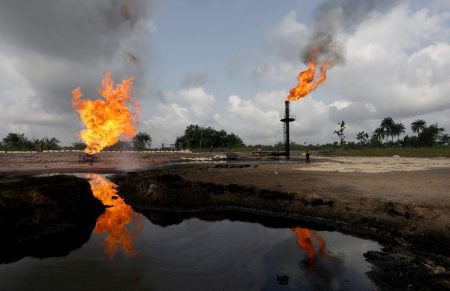
OpeOluwani Akintayo
Lagos — Timipre Sylva, Minister of State for Petroleum Resources has said the federal government plans to construct nine new gas-fired power plants with a combined name-plate capacity of nearly 6,000 MW by 2037.
The Minister revealed this at a conference held last week in Abuja.
According to him, the plants will further validate gas as viable and as transformational fuel.
“Our proven gas reserves are sufficient to cover current demand levels and support plans for the construction of nine new gas-fired power plants with a combined name-plate capacity of nearly 6,000 MW by 2037.This validates gas as viable and transformational fuel for industrial development. This is why President Muhammadu Buhari who is also the Honourable Minister of Petroleum Resources has declared 2021 – 2030 as the “Decade of Gas”, which provides the fulcrum for focusing effort and resources required at making gas the centrepiece of Nigeria’s economy by 2030,“ he said.
Sylva had described calls to phase out fossil fuel as “a major concern”, saying African countries are not ready for the transition, as most are currently grappling with other challenges.
“While acknowledging our commitments to net-zero as a nation, there is no gainsaying the fact that Nigeria requires fossil fuel as its baseload energy source. This is undoubtedly a major concern for climate activists in developed nations, but the clamour to emphasise only renewable energy as the sole pathway to energy transition is a source of concern for African countries that are still working to achieve baseload industrialisation, address energy poverty and ensure reliable power supply”.
This, he said, is why Nigeria “rejects” the concept of a single pathway to the energy transition.
“Indeed, we prefer the concept of ‘just’ energy transition which takes into cognisance the specific circumstances of each nation in developing the energy transition pathway that best achieves the environmental, social, political and economic objectives of the transition in that specific nation. Multiple pathways to the energy transition should and must exist in order to ensure that no country is left behind in the process of achieving net-zero by 2050”, he said, adding that in Nigeria, the position above recognises the possibility of a structural decline in the price of oil and consequential fiscal vulnerabilities that may arise, as well as the increased risk exposure, and is responding to it in several ways.
The Minister added that Nigeria would “first focus” on gas.
“For us (Nigeria), this is at the heart of the energy transition and represents the first step in the journey to renewables away from oil. Already, we have declared that gas is our transition fuel, and also represents a destination fuel, as we envisage that it will be part of our energy mix by 2050 given the vast resources that can be commercialised and utilised.
Furthermore, he said generous incentives have been proposed in the Petroleum Industry Act, PIA 2021 to enable development, distribution, penetration and utilisation of gas.
The National Gas Expansion Programme was launched in January 2020 to drive domestic utilisation.



